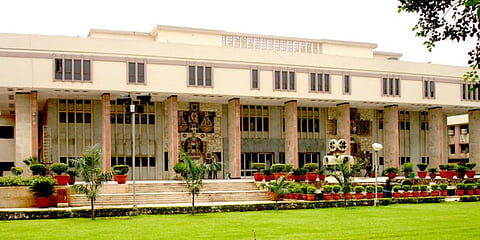

NEW DELHI: The Delhi High Court has expressed displeasure over usage of sentence like ‘Tom, Dick and Harry’ in a petition raising grievance relating to National Company Law Tribunal (NCLT) and said such ‘slang language’ is not permissible in the pleadings before a court of law. The HC, which declined to entertain the petition, said it was refraining from imposing costs at this stage since the petitioner was appearing in person.
Justice Prathiba M Singh said the petitioner appeared to have drafted the petition on his own and perusal of a paragraph showed that ‘there is slang language being used in the petition’. “The said paragraph reads as under: ‘(f) The AA / NCLT cannot permit any person Tom, Dick, and Harry to represent and defend the respondent under section of IBC (Insolvency and Bankruptcy Code), as the rules does not permit it. Such language is not permissible in pleadings before the court.
Accordingly, this petition is liable to be dismissed,’ Justice Singh said. With PTI inputs The Delhi High Court has expressed displeasure over usage of sentence like ‘Tom, Dick and Harry’ in a petition raising grievance relating to National Company Law Tribunal (NCLT) and said such ‘slang language’ is not permissible in the pleadings before a court of law.
The HC, which declined to entertain the petition, said it was refraining from imposing costs at this stage since the petitioner was appearing in person. Justice Prathiba M Singh said the petitioner appeared to have drafted the petition on his own and perusal of a paragraph showed that ‘there is slang language being used in the petition’.
“The said paragraph reads as under: ‘(f) The AA / NCLT cannot permit any person — Tom, Dick, and Harry to represent and defend the respondent under section of IBC (Insolvency and Bankruptcy Code), as the rules does not permit it. Such language is not permissible in pleadings before the court. Accordingly, this petition is liable to be dismissed,’ Justice Singh said.